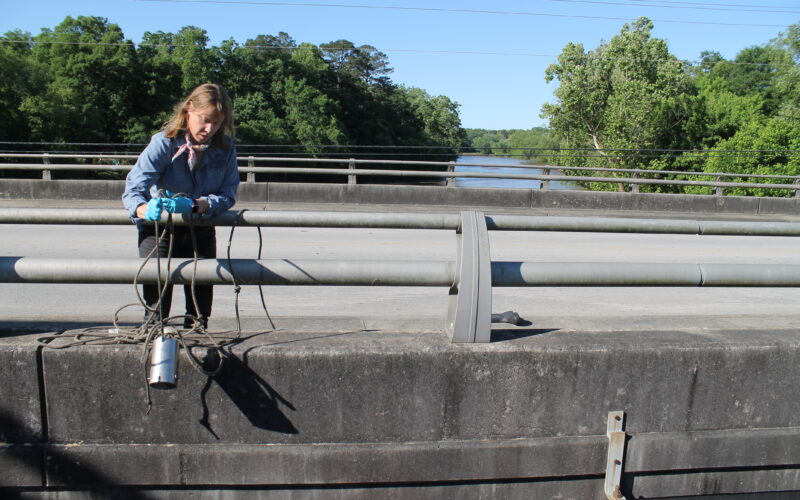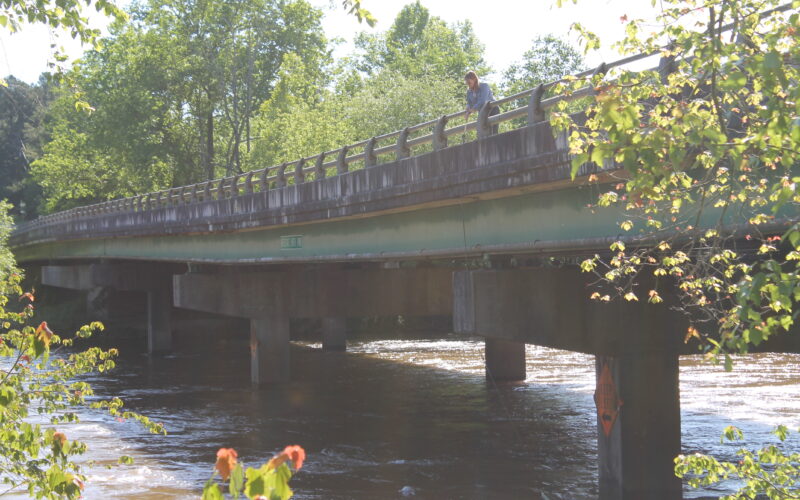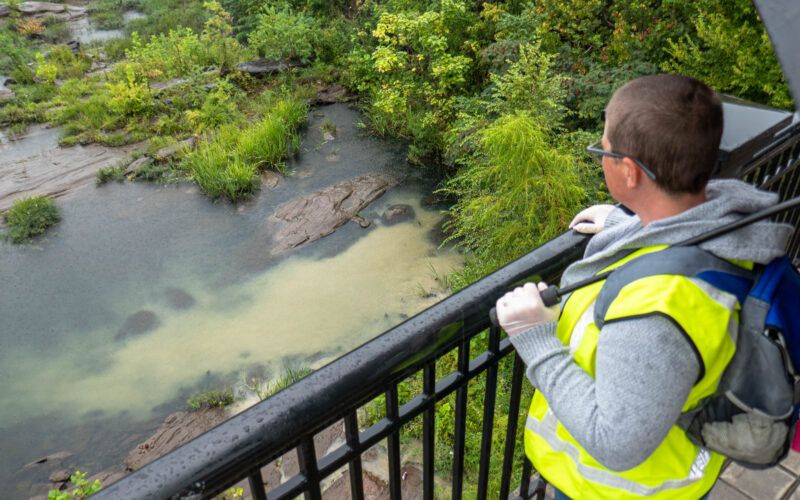In 2024, West Point Lake exceeded Georgia’s water quality standards for chlorophyll-a for the second consecutive year, triggering the development of a state-mandated pollution reduction plan called a Total Maximum Daily Load (TMDL).
Chlorophyll-a, a green pigment found in algae, is a key measure of water quality and environmental health. The algae grow in excess when nutrients (nitrogen and phosphorus) enter the water from wastewater discharges, stormwater runoff, and agricultural activities. Algae can degrade water quality, impact the taste and smell of drinking water, reduce oxygen levels critical for fish and aquatic life, and pose potential health risks to humans and animals.
Since 2014, CRK has collected water samples from West Point Lake in accordance with a state-approved sampling plan. Data collected in both 2023 and 2024 revealed the highest recorded chlorophyll-a levels in the lake in over a decade, with concentrations at the City of LaGrange water intake station reaching nearly 30 μg/L – exceeding the state standard of 24 μg/L. Over the past ten years, our data shows a steady increase in algae levels, likely driven by nutrient pollution from sources upstream and warmer water temperatures.
Starting in 2026, we expect the Georgia Environmental Protection Division to develop a pollution reduction plan that will provide a framework for reducing the amount of nutrients flowing into West Point Lake and establish enforceable limits on discharges upstream to improve water quality. While significant progress has been made – bacteria levels upstream of the lake have dropped by more than 80% in the past three decades – nutrient pollution remains a challenge. CRK will continue to monitor the lake, provide critical data, and work with stakeholders to ensure meaningful actions are taken to protect this vital resource for drinking water, recreation, and wildlife.
This article originally appeared in the Winter/Spring 2025 issue of RiverCHAT.
Related Posts

Take Action: Save USGS water monitoring
To edit your message, fill out your contact information on the left and click "edit messages." For questions about this form, please contact Rosemary Pitrone at [email protected].


